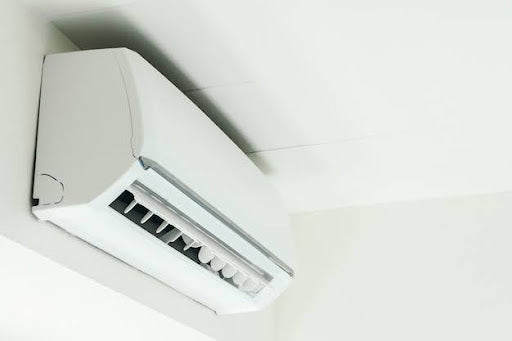When it comes to efficient home cooling and heating, two top contenders stand out: mini split air conditioners and heat pumps. Both offer unique advantages depending on your climate, budget, and comfort needs. Understanding the differences can help you make a smart investment in your home’s comfort system.
What is a Mini Split AC?
A mini split AC, or ductless mini split air conditioner, is a system that provides cooling without the need for ductwork. It consists of an outdoor compressor unit and one or more indoor air handling units connected by refrigerant lines. Each indoor unit can be controlled independently, allowing for zoned temperature control in specific rooms or areas.
Mini split ACs are known for their quiet operation, energy efficiency, and ease of installation. However, traditional models are designed solely for cooling, not for heating.
What is a Heat Pump?
A heat pump is a versatile HVAC system that provides both heating and cooling. It operates by transferring heat rather than generating it. In the summer, it works like an air conditioner, removing heat from inside your home. In the winter, it extracts heat from the outside air and brings it indoors.
Heat pumps can be either ducted or ductless, and they are especially effective in moderate climates. Some advanced models also include a backup heating element to perform well in colder temperatures.
Pros and Cons of Mini Split AC
Mini split AC systems have gained popularity among homeowners for their flexibility and efficiency. However, like any system, they come with both benefits and limitations.
Energy efficiency for cooling
Mini split ACs use inverter technology that adjusts compressor speed to meet cooling demands. This results in significant energy savings compared to traditional systems that operate in on-off cycles.
Zoned temperature control
Because each indoor unit is independently controlled, you can cool specific areas of your home without wasting energy on unused spaces. This is perfect for multi-room homes or spaces with different comfort needs.
Easy installation
Mini splits do not require ductwork, making installation simpler and less invasive. They are ideal for older homes, home additions, or areas where ducting is impractical.
Quiet operation
Indoor units are designed to operate quietly, which makes them suitable for bedrooms, offices, and libraries. The outdoor unit is also relatively silent compared to central AC compressors.
Compact design
Mini split units are sleek and compact, saving space while blending well with interior decor. They can be mounted on walls, ceilings, or even recessed for a cleaner look.
Limited to cooling only
Unless you choose a heat pump version, standard mini split ACs do not provide heating. You will need a separate heating system for colder months.
Higher upfront cost
The initial cost of mini split systems can be higher than that of window units or portable ACs. However, their long-term energy savings often offset the upfront investment.
Aesthetic concerns
Some homeowners may find wall-mounted indoor units visually unappealing, especially in rooms where interior design is a priority.
Pros and Cons of Heat Pumps
Heat pumps are known for their dual functionality and year-round comfort. Below are the advantages and disadvantages of using a heat pump system.
Heating and cooling in one
Heat pumps serve both heating and cooling needs, making them a convenient all-in-one system. You do not need to install and maintain separate units for each season.
Energy savings
Since heat pumps transfer heat rather than generating it, they use significantly less energy compared to electric resistance heaters or traditional furnaces.
Environmentally friendly
Because of their high efficiency and lower emissions, heat pumps are considered a greener alternative for home heating and cooling.
Consistent indoor comfort
Heat pumps maintain a steady indoor temperature by running continuously at low power, reducing temperature fluctuations common with older HVAC systems.
Versatile options
Heat pumps are available in ducted and ductless configurations. They also work with air handlers and can integrate into existing systems for added flexibility.
Reduced efficiency in extreme cold
Standard air-source heat pumps become less effective in freezing temperatures. In colder regions, a backup heating source may be required.
Higher installation cost
Installing a heat pump system can involve significant upfront costs, especially if ductwork needs upgrading or if electrical systems require enhancements.
Maintenance complexity
Heat pumps may require more frequent maintenance due to their dual functionality. Ensuring efficiency across both heating and cooling modes takes proper care and servicing.
Which One is Right for You?
Choosing between a mini split AC and a heat pump depends on your climate, home layout, and personal comfort preferences. Here are several key factors to help guide your decision.
Climate
If you live in a region with hot summers and mild winters, a mini split AC may meet your needs perfectly. In areas with colder winters, a heat pump offers the advantage of year-round use.
Budget
Mini split ACs may have a lower overall cost if you only need cooling. However, if you need both heating and cooling, a heat pump can save you money in the long run by eliminating the need for separate systems.
Installation complexity
Mini-splits are easier to install in homes without ducts. Heat pumps might require more involved installation, particularly if upgrading from an older furnace or AC system.
Space considerations
Both systems are space-saving, but mini splits offer more flexibility in placement. If wall-mounted units are not ideal for your room layout, you might prefer the flexibility of heat pump setups.
Energy efficiency goals
If reducing your carbon footprint is a top priority, heat pumps offer an environmentally friendly solution that aligns with green energy goals.
Find the Best Mini Split and Heat Pump ACs at Voomi Supply
Whether you are leaning toward a mini split AC or considering a heat pump for your home, Voomi Supply offers a wide range of high-quality systems to meet your needs. Explore their collection of mini split AC systems and mini split heat pumps to find the right match for your comfort, efficiency, and design preferences.


